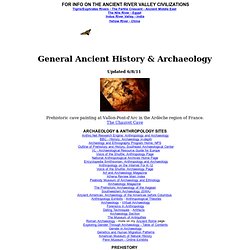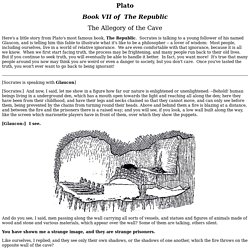

Presocratic Philosophy. The Origins of Western Thought Philosophical Thinking Philosophy as a discipline isn't easy to define precisely.

Issuing from a sense of wonderment about life and the world, it often involves a keen interest in major questions about ourselves, our experience, and our place in the universe as a whole. But philosophy is also reflectively concerned with the methods its practitioners employ in the effort to resolve such questions. Emerging as a central feature of Western culture, philosophy is a tradition of thinking and writing about particular issues in special ways. Thus, philosophy must be regarded both as content and as activity: It considers alternative views of what is real and the development of reasons for accepting them. Since our personal growth in these matters naturally retraces the process of cultural development, study of the history of philosophy in our culture provides an excellent introduction to the discipline as a whole. Greek Philosophy Milesian Speculation Pythagorean Life. General Ancient History. FOR INFO ON THE ANCIENT RIVER VALLEY CIVILIZATIONSTigris/Euphrates Rivers - The Fertile Crescent - Ancient Middle East The Nile River - Egypt Indus River Valley - IndiaYellow River - China Updated 6/8/11 Prehistoric cave painting at Vallon-Pont-d'Arc in the Ardèche region of France.

The Chauvet Cave PREHISTORY Classroomtools.com Warm-up Activity - Is That A Fact? Myth, Legend, Folklore, Ghosts. Apollo and the Greek Muses Updated July 2010 COMPREHENSIVE SITES ON MYTHOLOGY ***** The Encyclopedia Mythica - SEARCH - Areas - Image Gallery - Genealogy tables - Mythic Heroes Probert Encyclopaedia - Mythology Gods, Heroes, and MythDictionary of Mythology What is Myth?

MESOPOTAMIAN MYTHOLOGYThe Assyro-Babylonian Mythology FAQ Sumerian Mythology FAQ Sumerian Mythology Sumerian Gods and Goddesses Sumerian Myths SUMERIAN RELIGION Mythology's Mythinglinks: the Tigris-Euphrates Region of the Ancient Near East Gods, Goddesses, Demons and Monsters of Mesopotamia The Assyro-Babylonian Mythology FAQ More info on Ancient Mesopotamia can be found on my Ancient River Valley Civilizations page. GREEK MYTHOLOGYOrigins of Greek MythologyGreek Mythology - MythWeb Greek-Gods.info (plus a fun QUIZ)Ancient Greek Religion Family Tree of Greek Mythology Greek Names vs. Aristotelian Logic & Why it Doesn't Work. Introduction By Aristotelian logic, I mean category logic, excluded-middle logic, on/off logic, either/or logic.

No greys – only black and white. This false ‘logic’ lies at the heart of authoritarianism, conflict, and a great deal of inadequate ‘science’. You are either for us or against us. He ‘is’ ‘good’ or he ‘is’ ‘bad’ . Aristotelian logic is also called by some, ‘Descartian logic’. The problems caused by Aristotelian logic are legion and accumulate.
In this document, the elements in the green and yellow boxes refer to the fundamentals of rational communication. Reality You have been raised in an unsane culture. Every time you use a word you make a choice, you form a category to which only you have access. The errors of Aristotelian logic are so pervasive that they cannot be sorted by one or two simple fixes. It is not what you think that causes the majority of problems in communication, it is the way in which you think and the manner in which you communicate. Plato’s Cosmology: The Timaeus. Problem of Evil - Epicurus. Plato's Allegory of the Cave. Plato Book VII of The Republic The Allegory of the Cave Here's a little story from Plato's most famous book, The Republic.

Socrates is talking to a young follower of his named Glaucon, and is telling him this fable to illustrate what it's like to be a philosopher -- a lover of wisdom: Most people, including ourselves, live in a world of relative ignorance. We are even comfortable with that ignorance, because it is all we know. [Socrates is speaking with Glaucon] [Socrates:] And now, I said, let me show in a figure how far our nature is enlightened or unenlightened: --Behold!
[Glaucon:] I see. And do you see, I said, men passing along the wall carrying all sorts of vessels, and statues and figures of animals made of wood and stone and various materials, which appear over the wall? You have shown me a strange image, and they are strange prisoners. True, he said; how could they see anything but the shadows if they were never allowed to move their heads? Yes, he said. Very true. That is certain. How to Live Like Socrates: 13 steps.